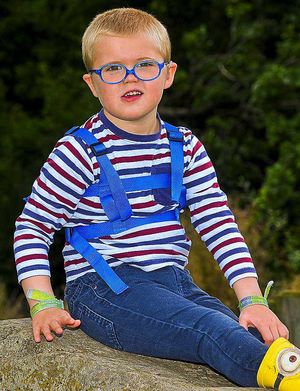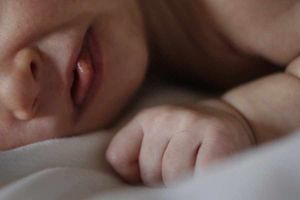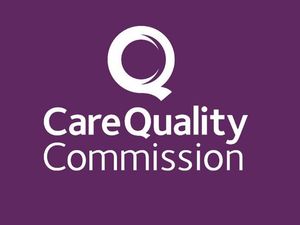New meningitis jab hailed a step forward by Shropshire mother
A new meningitis vaccine being given babies across the UK has been welcomed as a "step forward" by a Telford mother who has experienced the effects of the infection on her child first-hand.
The family of little Adam Cheshire know all to well the misery meningitis can bring. Adam was left fighting for his life just eight hours after his birth.
He had become infected with group B Strep (GBS) form of the illness.
Staff at Royal Shrewsbury Hospital managed to save Adam's life, but he was left deaf, along with a number of other problems.
Today his family spoke as it was revealed a new vaccine will help prevent young people catching the meningitis B strain of the illness.
Adam is now four and leads a happy life with his family in Telford.

A new vaccine to prevent meningitis could prevent up to 4,000 cases involving babies and young children, according to charity chiefs.
Christopher Head, chief executive of the Meningitis Research Foundation, said it was hoped the new meningitis B jab being offered on the NHS for babies would "save many lives" and spare families from heartache.
But Mr Head and fellow campaigners urged parents to remain vigilant and look out for the symptoms of meningitis as there are still some strains of the infection that have no vaccine.
The meningitis B jab is being offered to infants aged two months, followed by a second dose at four months and a booster at 12 months.
There will also be a temporary catch-up programme for babies who are due their three and four-month vaccinations throughout September. The scheme is the first national and publicly-funded programme against the infection in the world.
The jab protects against infection by meningococcal group B bacteria, which can cause meningitis and septicaemia (blood poisoning). While meningitis B can affect people of any age, it is most common in babies and children under five. Tests suggest that the new vaccine, called Bexsero, will protect against about 90 per cent of the meningococcal group-B bacteria strains circulating in the UK.
Mr Head said: "We hope this vaccine will save many lives and spare countless families the trauma of seeing a loved one die or become seriously disabled because of meningitis B.
"If cases continue as they have in the past, over the next decade this vaccine could potentially prevent up to 4,000 cases of meningococcal disease in children younger than five in the UK. However, we must remind the public that there are still some forms of the disease which are not covered by vaccines."
His mother, Church of England curate Reverend Charlotte Cheshire, has been named the latest volunteer ambassador for national charity Group B Strep Support.
She said today's news about the meningitis B vaccine is a step forward. But Mrs Cheshire says all pregnant women should now also be routinely tested to see if they are carrying group B Strep.
Mrs Cheshire, who is the curate at St Andrew's Church in Shifnal, St Mary's Church in Sheriffhales and St Bartholomew's in Tong, said she could not believe the UK health service continues to ignore a prevention strategy that could save babies' lives.
"All of this could have been averted," says Charlotte. "A group B Strep-specific test in late pregnancy would almost definitely have detected group B Strep, and with antibiotics from the start of labour, Adam could have been protected.
"It is, of course, an immense irony that I am Canadian and, if Adam had been born in Canada, I would have been tested for GBS and so this deadly infection, and the resulting disabilities, could have been prevented."
On average, one newborn baby a day in the UK develops group B Strep infection – most commonly septicaemia, pneumonia or meningitis. One in 10 of those babies infected dies, one in 20 of the survivors suffer long-term problems and five in 10 survivors of group B Strep meningitis suffer long-term mental and physical problems, from mild to severe.
Mrs Cheshire said: "GBS has left a devastating legacy. We were warned that complications could develop as a result of group B Strep meningitis, ranging from brain damage, epilepsy, cerebral palsy, paralysis, amputations, blindness, hearing loss and learning difficulties, to name just a few.
"Adam is hearing and visually impaired, autistic, developmentally delayed and asthmatic. He is now four years old but his developmental age is 12-18 months and his ability to communicate is very limited. Adam now attends The Bridge School in Telford for children with profound special needs and he continues to need a great deal of support from a range of consultants, therapists and of course from his parents."
The youngster first showed signs of Strep B the morning after he was born as he was grunting and not feeding. The hospital staff quickly realised something was wrong and he was taken to the Neonatal Unit. Adam stopped breathing and was put on a ventilator, suffered near constant seizures and was put on a brain monitor. He became severely jaundiced and had developed a dangerously high fever. He had to be fed with intravenous solutions.
His mother said Adam had become so gravely ill he was not expected to live. On day seven, Adam was finally able to breathe unaided and was removed from life-support.
Despite the challenges ahead and extensive uncertainty for a long time to come, Adam's parents feel truly blessed to have their "little miracle" alive and kicking.
The emotional cost, however, to the family has been extraordinary.

Mrs Cheshire says the simple test would be far cheaper than today's vaccine and prevent the ongoing cost of care to those who have suffered.
"The cost to the NHS is substantial and on-going," she said. "Adam will need help throughout his life. Thankfully Adam is a survivor, yet his life is shaped with profound disability."
More than 20 countries routinely test pregnant women to see if they are carrying group B Strep, then offer those who do antibiotics in labour. Countries that do this have seen their rate of group B Strep infection in newborns fall dramatically – in Spain by 86 per cent, the USA by over 80 per cent and France by 71 per cent.
The UK does not routinely test pregnant women for group B Strep carriage. Here, antibiotics in labour are offered to mums who have specific risk factors.
The rate of group B Strep infections in newborn babies has not fallen since the UK introduced its prevention strategy in 2003.
Mrs Cheshire added: "Since Adam's infection, Group B Strep Support has given our family so much support and I remain appalled that group B Strep is not widely tested for. I am committed to raising awareness of this deadly and yet preventable infection."
The meningitis B jab is being offered on the NHS for infants aged from two months, followed by boosters.
The scheme, which has been delayed by cost disputes, is the first national and publicly-funded programme against the infection in the world.
It was today welcomed by Pauline Grime, from Telford, whose daughter almost died when she contracted meningitis eight years ago and the experience spurred her to become is a community ambassador for Meningitis Now.
She said: "I know only too well how cruel this disease can be and I don't want other local families to go through what we have."
Her youngest daughter Eliza contracted meningitis and septicaemia in 2007 when she was four. She was on life support and the family was warned to expect the worst, but she fought back and survived.
"She has done well but we are still picking up the pieces and dealing with the after-effects of the disease, which will be life-long."

Essential facts regarding deadly infection
The new meningitis B vaccine will be given as part of the NHS vaccination programme for children. Here are some essential facts:
What is meningitis? Meningitis is a deadly infection of the meninges the protective membranes surrounding the brain and spinal cord. It can be passed on through close contact. Babies and young children are most vulnerable. Symptoms include a high fever with cold hands and feet, being agitated or not wanting to be picked up, confusion, vomiting and headaches. Some babies become drowsy, floppy and unresponsive, grunt or breathe rapidly and have an unusual high-pitched or moaning cry. A red rash that does not fade when a glass is rolled over it is another sign.
How many people are affected? Figures suggest that around 1,200 people suffer from meningitis B every year, with about one in 10 dying from the infection. In 2011/12, there were around 2,350 cases overall of bacterial meningitis and septicaemia in the UK. There are two vaccines against other types of meningitis. The meningitis ACWY vaccine is currently being offered to 17 and 18-year-olds and first-time university students, while the meningitis C vaccine is given to babies as part of routine childhood immunisations.
Is the new vaccine safe? According to the NHS, almost 8,000 people, including more than 5,000 babies and toddlers, have been given the vaccine during clinical trials, with no safety concerns. Babies can develop a fever within the first 24 hours after vaccination and other common side effects include irritability. Public Health England has urged parents to give their babies liquid paracetamol at the time of injection to help reduce the risk of a fever. The vaccine will be given to babies aged two months, followed by a second dose at four months and a booster at 12 months.
Why has it taken so long to be introduced? Cost negotiations between the vaccines manufacturer, GlaxoSmithKline and the Government led to delays. The Joint Committee on Vaccination and Immunisation, which advises the Government on vaccination, published a statement in summer 2013 saying the vaccine was unlikely to be cost-effective at any price. But, following intense campaigning, the JCVI announced in March 2014 that the vaccine should be introduced. A further year of talks on cost took place before the Government announced in March that the vaccine would go ahead. The vaccine is also available privately for parents who want to vaccinate older children.





